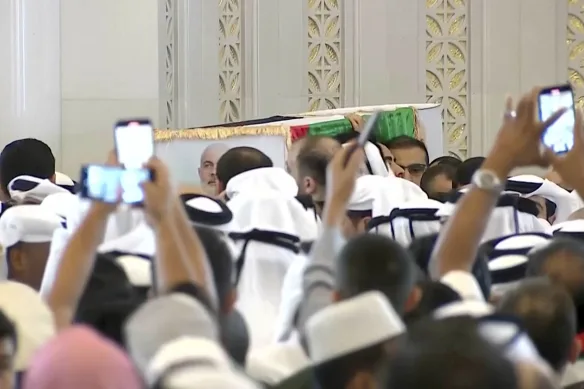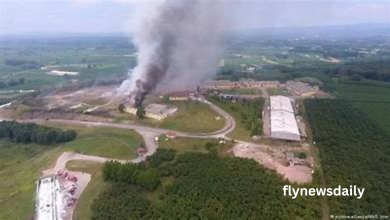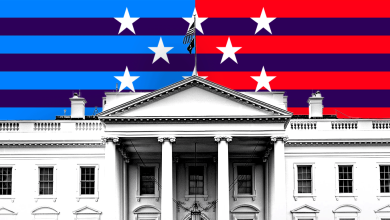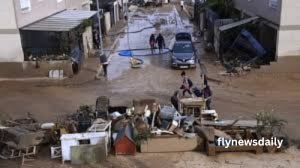
Introduction
The Middle East remains a region of intricate alliances and enmities, and the recent death of a significant figure such as Haniyeh has stirred the geopolitical pot even more. For Middle East analysts, understanding Iran’s response to this event is critical as it has potential implications for the entire region’s stability. In this blog post, we’ll explore the events leading up to Haniyeh’s death, analyze Iran’s reaction, and assess the broader regional and international impacts. This exploration aims to provide a comprehensive understanding of the current dynamics at play and what might unfold in the near future.
Background
To fully appreciate the gravity of Iran’s response, it’s essential to understand the backdrop against which Haniyeh’s death occurred. Ismail Haniyeh was a prominent political leader within the Palestinian territories, playing a central role in the Hamas organization. His influence extended beyond Palestine, symbolizing resistance to Israel and representing a key figure in Iran-Palestine relations. Historically, Iran has supported Palestinian groups like Hamas as part of its broader strategy to extend influence and counterbalance Israeli power in the region.
The alliance between Iran and Hamas is not new. It stems from shared ideological motivations and strategic interests, with Iran providing financial and military support to Hamas. Haniyeh’s death disrupted these dynamics, raising questions about the continuity of Iranian support and the potential shifts within Palestinian internal politics. Understanding this history is crucial for analyzing Iran’s subsequent actions and the possible recalibration of regional alliances.
Analysis of Reprisal
In the wake of Haniyeh’s death, Iran’s response has been multifaceted, encompassing official statements, military posturing, and diplomatic engagements. The Iranian government issued statements condemning the assassination, attributing it to Israeli operations, and vowed retaliation. This rhetoric was consistent with Iran’s longstanding narrative of resistance against Israel and support for Palestinian autonomy.
On the military front, Iran has showcased its capabilities through military exercises and demonstrations of missile technology, signaling readiness and resolve to protect its interests and allies. These actions serve both as a deterrent against potential aggressors and as reassurance to its allies in the region that Iran remains a formidable player.
Diplomatically, Iran has reached out to other regional powers, attempting to galvanize support and reinforce alliances. Meetings with Syrian and Lebanese officials, as well as outreach to Russia and China, highlight Iran’s strategy to bolster its position and secure backing from key international actors. This multifaceted approach underscores Iran’s intent to maintain its influence in the region and deter any threats to its strategic goals.
Regional Implications
Iran’s reprisal actions have reverberated throughout the Middle East, influencing the regional power balance and diplomatic relations. Israel, as the perceived instigator of Haniyeh’s death, finds itself in a heightened state of alert, anticipating potential retaliatory strikes. This tension adds another layer of complexity to the already volatile Israeli-Palestinian conflict, with both sides bracing for further escalations.
In the Palestinian territories, Haniyeh’s death and Iran’s response could lead to a realignment of factions within Hamas and other Palestinian groups. There are concerns about leadership succession and whether Iran can exert the same level of influence without Haniyeh’s presence. Additionally, neighboring countries like Lebanon and Syria, with their own internal conflicts and ties to both Iran and Hamas, may find themselves caught in the crossfire, impacting their domestic and foreign policies.
Furthermore, the reprisal has implications for the Gulf states, many of which are wary of Iran’s regional aspirations. Countries like Saudi Arabia and the UAE may seek to counterbalance Iran’s actions through alliances with Israel and other Western powers, potentially leading to a more polarized and divided Middle East.
International Response
Globally, Iran’s actions have drawn reactions from various international players, each interpreting the events through the lens of their geopolitical interests. The United States, a staunch ally of Israel, has condemned Iran’s military posturing and reaffirmed its commitment to Israel’s security. This stance is likely to reinforce existing tensions between the U.S. and Iran, impacting negotiations over Iran’s nuclear program and other bilateral issues.
European countries, while advocating for de-escalation, remain concerned about the stability of the region and the potential for wider conflict. Their diplomatic efforts are focused on mediating discussions and promoting peaceful resolutions to the tensions. Meanwhile, Russia and China, with vested interests in the Middle East, have shown a more supportive stance towards Iran, seeing it as a counterbalance to Western influence.
These varied international responses highlight the complex interplay of global politics in the Middle East, where local events can have far-reaching consequences. The reprisal not only affects regional dynamics but also shapes the global geopolitical landscape, influencing alliances and shaping future diplomatic engagements.
Conclusion
The death of Haniyeh and Iran’s subsequent actions underscore the intricate and often volatile nature of Middle Eastern geopolitics. For Middle East analysts, these events offer insights into the current and future state of regional power dynamics. Iran’s multifaceted response—encompassing military, diplomatic, and political elements—illustrates its strategic priorities and the lengths it will go to maintain influence.
Looking ahead, several factors will shape the region’s trajectory, including leadership changes within Palestinian factions, the responses of neighboring countries, and the interventions of global powers. Analysts must continue to monitor these developments, assessing their impact on regional stability and international relations.
Engaging the Community
We invite you to share your insights and perspectives on these events. How do you see the situation evolving? What factors should analysts focus on to better understand the region’s future? Engage with us in the comments below, and let’s explore the complexities of Middle Eastern geopolitics together.



